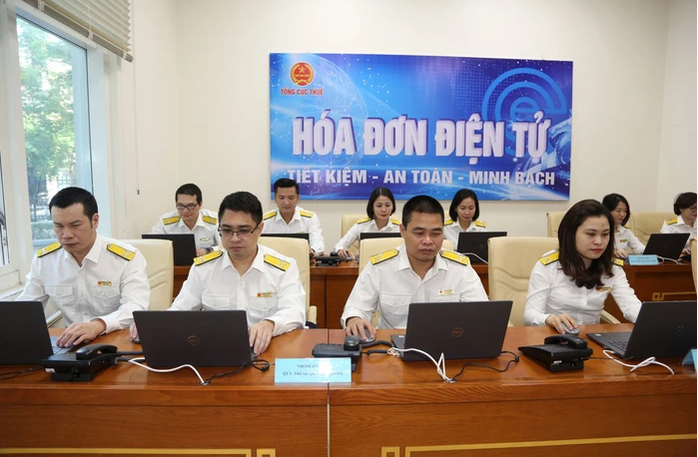A notable proposal in the draft amended Tax Administration Law is the allocation of 0.1% of value-added tax (VAT) revenue to benefit taxpayers. Specifically, this fund will be used to implement measures encouraging consumers to request invoices when purchasing goods or services, and to reward those who report businesses failing to issue electronic invoices.

Taxpayers will benefit from electronic invoice lottery programs.
In an interview with Bao Nguoi Lao Dong on November 18, Mr. Le Van Hai, Deputy Head of the Legal Department at the Tax Agency, questioned whether 0.1% of total VAT revenue is significant. The answer is yes, considering its impact on behavior.
According to Mr. Hai, international experience shows that invoice incentive programs significantly reduce VAT losses, particularly among small businesses, households, and micro-services. This not only improves VAT management but also enhances the oversight of corporate income tax and other taxes related to business operations.
“When consumers request invoices, sellers are compelled to issue them to maintain credibility and relationships. This is a natural, gentle method to shift the market from ‘underground transactions’ to transparent dealings,” Mr. Hai observed.
Historically, the Tax Administration Law has been perceived as a tool for enforcement and penalizing violations. Mr. Hai believes that allocating 0.1% of revenue will transform tax policy into an incentive mechanism.
This approach safeguards taxpayer rights, ensures transparency, and allows taxpayers to benefit from incentive programs, participate in electronic invoice lotteries, and receive lawful rewards.
“While 0.1% of VAT revenue may seem small, it can create a powerful ripple effect, transforming market culture. If approved by the National Assembly, this will be a major milestone in building a transparent, fair, and sustainable economy,” Mr. Hai anticipates.
From 2026, Lump-Sum Tax Abolition: 7 Essential Tips for Businesses to Avoid Tax Declaration Errors
Revised Introduction:
The Tax Department of Dak Lak Province has recently issued detailed guidelines for local businesses, outlining the steps to fulfill their tax obligations through the declaration method.
(Note: The revision maintains the core information while enhancing clarity, conciseness, and natural English phrasing.)
Preventing Abuse of Tax Debt Cancellation Policies
To address the persistent issue of unrecoverable tax arrears, the Ministry of Finance has proposed writing off tax debts over 10 years old while expanding travel bans for businesses with outstanding tax liabilities. However, experts caution that tax debt forgiveness requires careful consideration.




















